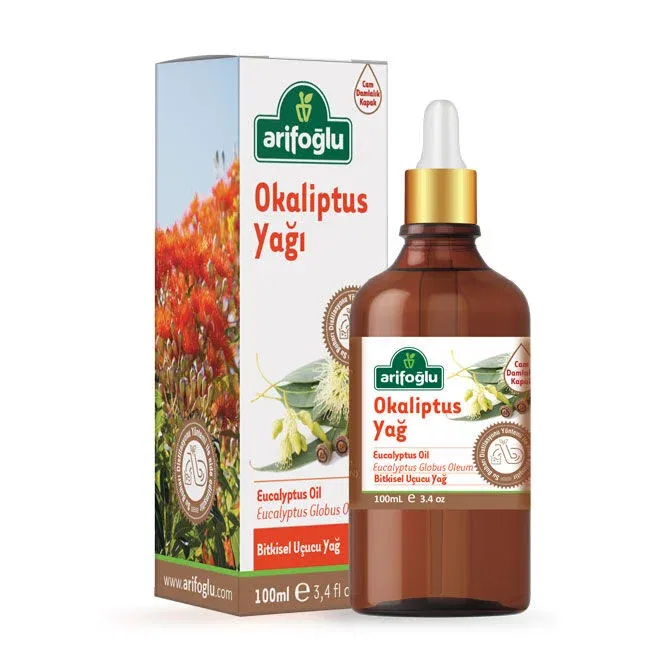History of Eucalyptus
The Eucalyptus Tree is commonly associated with koala bears, as Eucalyptus leaves are their main source of food. Most of the 700 varieties of Eucalyptus grow like trees while others grow like shrubs. The tree goes by several nicknames such as Fever Tree, Blue Gum Tree, and Stringy Bark Tree, depending on its location in the world. Despite the multiplicity of Eucalyptus varieties, they share common characteristics including their fresh, crisp, clean, sweet and camphoraceous scents, which are sometimes further described as having hints of lemon, peppermint, or woody nuances. However, the shared trait they are best known for is the beneficial healing properties of their leaves, which have made this tree’s essential oils widely used as a traditional and natural medicine for centuries. First used by the Aboriginal people of Australia, who referred to is as “kino” and used it to heal most wounds, Eucalyptus leaves were made into infusions and used to treat body pains, colds, sinus congestions, and fevers, hence the nickname Fever Tree.
Although Australia is the origin and the leading source of Eucalyptus Oil, the Eucalyptus tree and its essential oil production spread to other parts of the world including Brazil, Europe, Greece, China, and India. It was used for its disinfectant and expectorant properties in Chinese, Greek, European, and Ayurvedic medicine. Of the 700 species of Eucalyptus throughout the world, approximately 500 of them produce essential oil, and global Eucalyptus Oil production is mainly from the Eucalyptus globulus species, more commonly known as “Blue Gum.”
Eucalyptus Essential Oil’s active chemical components contribute to its reputation as a purifying, cleansing, clarifying, and immune-boosting oil that is ideal for use on skin and in aromatherapy. It is known for its ability to reduce or eliminate harmful surface and airborne bacteria, and infections upon contact. It facilitates easy breathing, enhances feelings of relaxation, creates a refreshing feeling when used in massages, soothes nervous tension, and helps clear the mind, among its various other benefits. These healing benefits can be attributed to the oil’s anti-inflammatory, anti-spasmodic, decongestant, deodorant, antiseptic, antibacterial, and stimulating qualities, among other valuable properties.
What is Eucalyptus oil?
HOW IS EUCALYPTUS OIL EXTRACTED?
Eucalyptus Essential Oil is steam distilled from fresh or partially dried Eucalyptus leaves. The geographical conditions under which the tree grows all have an impact on the yield of oil as well as the chemical composition. They include factors such as the environment, season, climate, water availability, soil nutrients, UV radiation, stage of plant development, genetic variation, the part of the plant collected, and the drying process.
The oils produced are clear and have scents characteristic of their botanical species. The oils’ distinctive aromatic profiles also depend on the proportions of the individual chemical constituents they contain, which are determined more by genetic factors rather than environmental ones. The species, then, is the most influential factor for determining the oil’s quality and use. These factors together govern the value of the oil.
The uses for Eucalyptus Essential Oil are abundant, ranging from medicinal and odorous to cosmetic. Its many forms include oils, gels, lotions, soaps, shampoos, and sprays, to name a few suggestions for homemade products.
Used in aromatherapy, the fragrance of Eucalyptus Essential Oil is inhaled and scent receptors in the brain’s emotional powerhouse process the smell as refreshing. A few drops of this invigorating oil placed in the hand while showering can be inhaled to promote a sense of vitality. Eucalyptus Oil’s expectorant properties also make it effective in facilitating the relief of congestion and respiratory tract infections. For relief from congestion, mix a few drops in a steaming bowl of hot water and lean over it to inhale the aromatic vapors with a towel draped over the head and bowl for a few minutes. The eyes should be closed to prevent irritation. It has traditionally been used to relieve the discomforts associated with fatigue, headaches, colds, sinusitis, mucous congestion, muscle aches and pains, and asthma.
